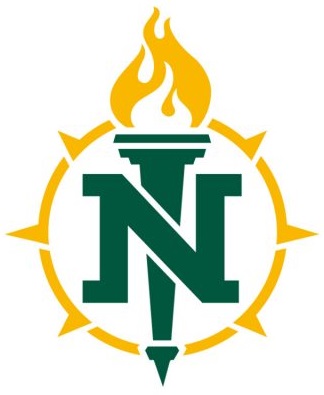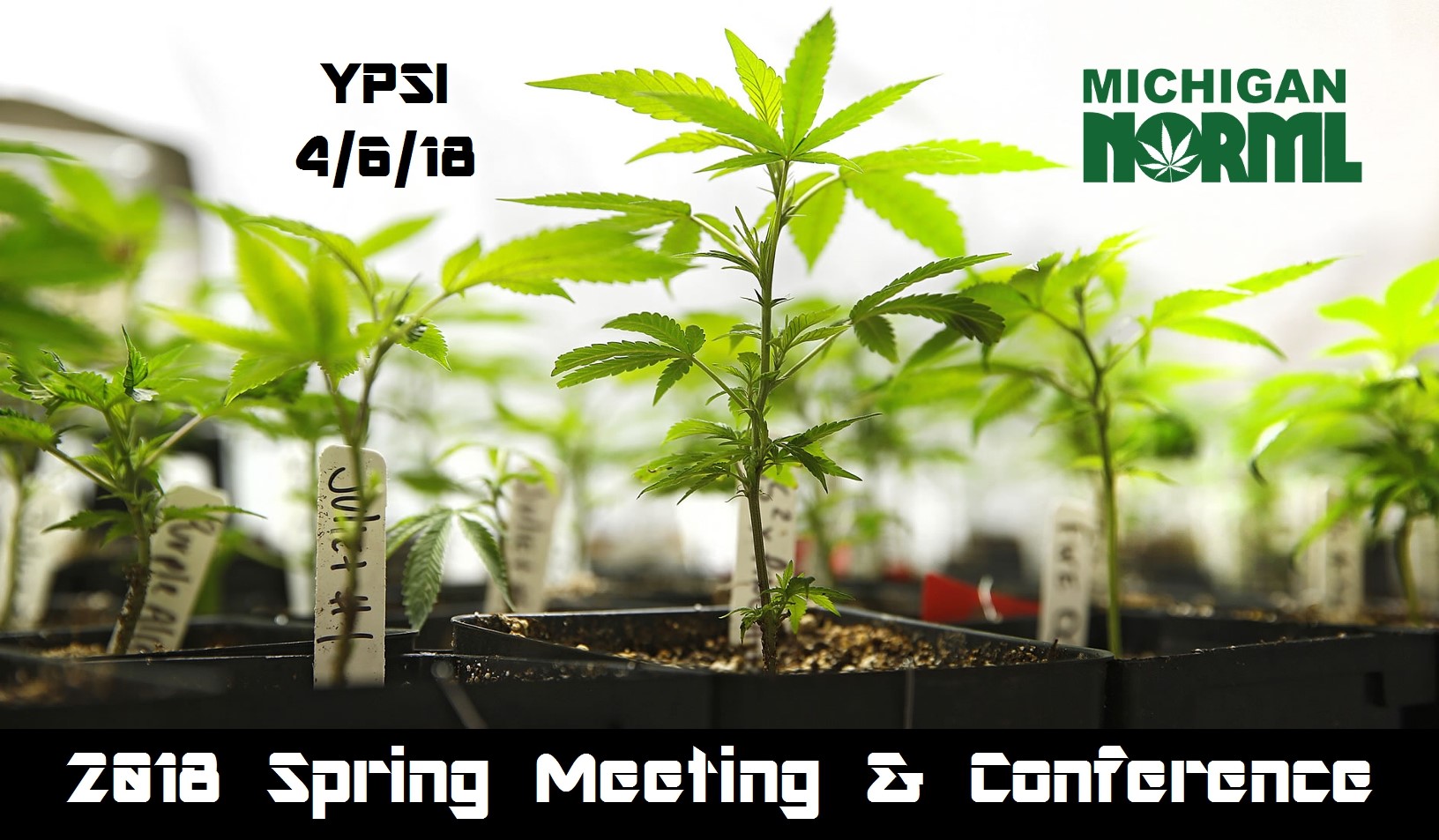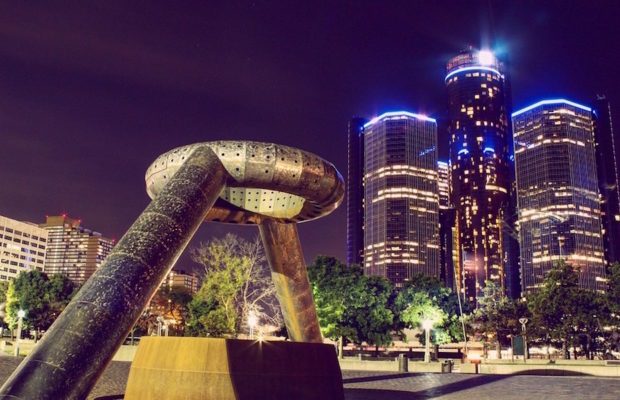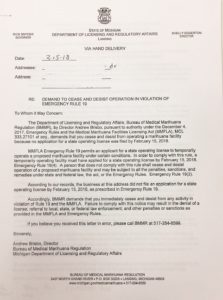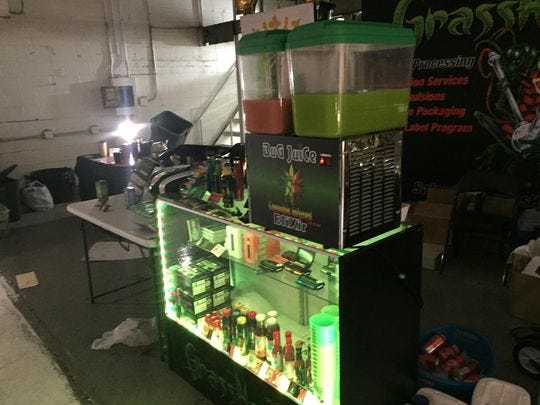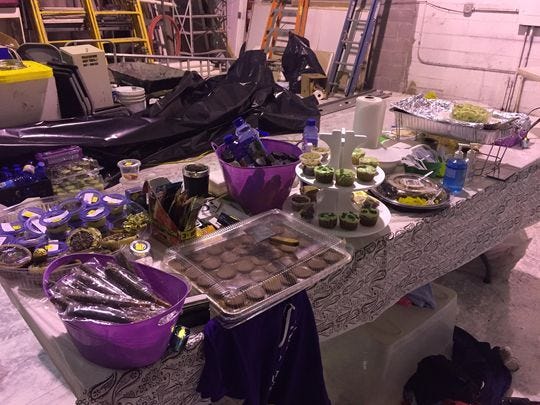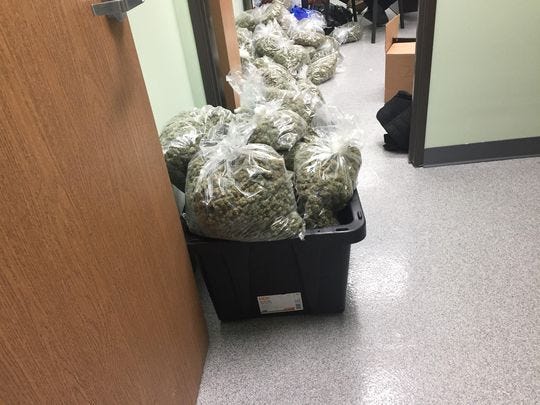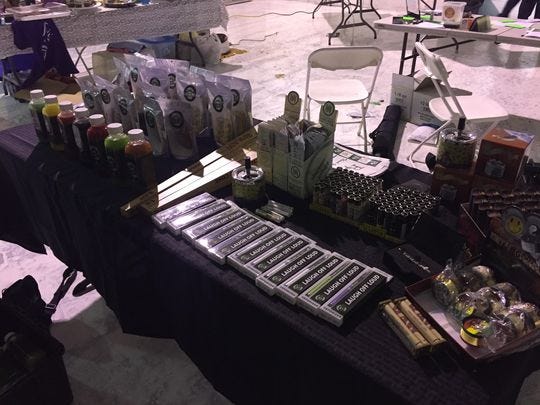No wonder that city is bankrupt and broke. Wow. Citizens of Detroit, they have been named....now vote them out of office.
Detroit could miss out on millions from medical marijuana
With the State of Michigan on the verge of handing out its first licenses for medical marijuana businesses later this month, one of the biggest potential participants could get sidelined from the lucrative business.
The City of Detroit, which, at one point, had more than 250 medical marijuana dispensaries operating in the city, is caught in a legal morass, battling the people — and the voters — who had hoped to open up the city for an exciting, if somewhat controversial, new industry.
At stake is a piece of what is estimated to be a $711-million business that could exceed $1 billion if the legalization of marijuana for adult recreational use gets on the November ballot and is approved by voters.
Paula Givens, an attorney who is a consultant for medical marijuana businesses, said she’s advising her clients to steer clear of Detroit, at least for the time being.
“Ever since the medical marijuana law was passed, I’ve told prospective business owners to stay away from Detroit,” she said, because of a fear the city wouldn’t be able to come to a consensus on how it wants to regulate the industry.
With a likely migration of medical marijuana clients to the suburbs, there will be losses of both jobs and economic development in Detroit, she said.
“There will be substantial excise, sales and income tax and jobs that will be lost,” Givens said. “And it will for sure have an economic impact on the city. If people come to the city to get their medicine, they’re coming from the suburbs and the current wisdom is that when they’re here, they buy gas, groceries and eat at restaurants in the city.”
Detroit was in the process of drafting an ordinance last year that would have limited the number of marijuana businesses and enacted strict guidelines on where those businesses could be located and how they would get approval from the city. As a part of that effort, the city shuttered many of its dispensaries, leaving only about 70 to continue operating under emergency rules crafted by the state.
That effort was upended when voters, by a 60-40% margin, passed two ordinances in November that were geared toward opening up the market to more people and a much wider swath of the city.
The vote put at least a temporary end to Detroit's efforts to draft an ordinance and instead sparked a legal fight by the city and medical marijuana advocates over the legality of voter-approved ordinances. The latest development in that fight was a ruling last month by Wayne County Circuit Judge Robert Colombo Jr., who sided with the city and ruled that voters can't change city ordinances. He overturned most of what voters had approved.
“We had an approach that said we had room in the city for about 50 medical marijuana dispensaries put in industrial areas and spaced out. We thought that was fair and we thought we were on a good track,” Detroit Mayor Mike Duggan said. “Then you had state legislation and a ballot referendum and you’ve got a legal quagmire right now, but (Detroit’s corporation counsel) Laurence Garcia is a smart guy. He’s sorting through it. Right after I get through the State of the City speech (on Tuesday), I’ll be sitting down and becoming an expert myself.”
Marijuana advocates, however, are feeling that their voices and vote are being ignored by the city.
Joe White, a board member of NORML, a nonprofit that advocates for marijuana legalization, said he's concerned that Detroit's efforts to overturn the initiatives could make voters feel disenfranchised.
"I've spoken with many young people," White said. "They said if I vote, it doesn't count. I think we have a lot of soul searching to do in Detroit. To look at cannabis as some evil boogeyman that's going to come in and turn kids into zombies, I think that story's been overdone. When we look at the evidence, we're really confused as to why the city is taking such a hard stance on something that could benefit the community."
The impasse, however, continues and the groups behind the voter-approved ordinances are expected to continue their legal fight against the city with an appeal that could be filed later this week, saying that the city is thwarting the will of the people.
“We’re planning on the appeal of the judge’s decision and then there are going to be some lawsuits for damages as a result of that litigation,” said attorney Michael Stein, who represents medical marijuana dispensary owners. “What the City of Detroit is going to do is drag its feet, making it impossible for anybody to get the approval they need before the June 15 deadline (set by the state).”
Indeed, if the city doesn’t have an ordinance in place by then, the dispensaries that have been able to operate under emergency rules will have to shut down or face the risk that the state will refer the businesses to law enforcement to shut them down as illegally operating without a license.
“You have to have been issued a license by the state by June 15 or the temporary operation authorization runs out,” said David Harns, spokesman for the state Department of Licensing and Regulatory Affairs.
So far, 331 people or businesses have submitted applications for licenses from the state, but only 112 of those applications includes approval from the communities where they want to locate. None of those are in Detroit. The rest of the applications, which include some Detroit-based businesses, are awaiting the go-ahead from the cities they want to call home.
More: Judge strikes down Detroit marijuana initiative
More: Marijuana legalization effort vaults a hurdle with no outside challenge to signatures
Making some rules
Detroit officials say they’re being thorough in trying to draft a medical marijuana ordinance at the same time they battle lawsuits filed by cannabis business interests.
Councilman James Tate, who was instrumental in writing an earlier Detroit marijuana ordinance, said he's not anti-marijuana or advocating against facilities being in Detroit, but he wants to be sure the city has policies in place to regulate an industry he believes is still in its "infancy."
The reason why Detroit's medical marijuana ordinance was put into place in 2015 "was because we wanted to make sure we had a compassionate ordinance that allowed for individuals who need medication to have access and also to ensure our neighborhoods were not overrun by anyone," Tate said.
Garcia said in an e-mail to the Free Press that the city is developing new regulations that will address a number of concerns, including establishing "reasonable" restrictions on zoning, spacing, number and drug-free zones and administrative rules for fees and processing of applications.
"Judge Colombo's recent decision clears the air so to speak, but it does not directly impact the work being done to create a complete regulatory framework," Garcia said.
Finding greener spots
Business interests that were hoping to invest in Detroit are hedging their bets and looking elsewhere for where to land their medical marijuana businesses.
And other nearby cities aren’t waiting to jump into the market. Fueled by $5,000 application fees for every medical marijuana business and the prospect of more money from the excise, sales and property taxes generated by the businesses, several suburbs in metro Detroit — Hazel Park, Walled Lake, Inkster, River Rouge, Centerline and Lennox, Harrison and Orion Townships — have already passed medical marijuana ordinances that will allow businesses to locate in their communities once the state beings handing out licenses. And several cities, including Ferndale, are expected to follow suit soon.
“Our planning commission is still finalizing its recommendations, but I’m confident that Ferndale is going to participate, but then the question becomes which licenses and how many,” said Mayor Dave Coulter. “I know we have a reputation as a progressive place, but we’ve wanted to do this very thoughtfully. We’re going to dip our toe in the water, rather than dive off the deep end.”
Givens said without an ordinance, businesses will have to close and patients will find other places to get their medical marijuana, she said.
"The suburban patients who travel to Detroit now will have closer dispensaries and that’s going to draw patients away from Detroit,” Givens said. “For a whole industry to lose out in Detroit, it will be tough for Detroit dispensary owners to recover and continue.”
Paul Samways, an accountant with marijuana business clients, said he has one client who was about to sign a land contract for property at 6 Mile and Woodward for a medical marijuana facility, “But I told him don’t do it and he didn’t. And others who own property in the city are taking a wait and see attitude.
“There may be some exceptional retail facilities in the city right now, but a lot of those businesses are going to move. The City of Detroit is going to cost themselves operators because they’re dragging their feet. The city should settle this suit as quickly as possible so they can stay in the game. Otherwise, they’re going to lose patients permanently.”
When asked whether the city was concerned about potentially losing out on a lucrative industry for Detroit, Garcia said Michigan's laws remain complicated "and complying with the law in this field has been complicated by the evolving nature of regulations at the federal, state and local levels. Notwithstanding the complexity of these fluid circumstances, the City of Detroit is doing its best to create rules regarding medical marijuana that are clear, understandable, equitable and reasonable.”
What about voters?
Left in the lurch in the fight over medical marijuana in the city are the voters, who thought they should have a voice in how the business evolved in the city.
White said Colombo's decision "really frightens" him and that the will of the people has been "trampled on."
"It's a very good possibility that the city could miss out," White said. "One of our major complaints about this was if the voters voted on this in a democratic society, why would we not want to hold up the voters' wish?"
Detroit resident Wayne Atkins said he voted in favor of both initiatives last year and is upset with the direction the city is moving.
"I think it's terrible that these people who don't really have the majority of residents behind them overshadow the vote," Atkins said. "Marijuana is not a depraved, family destroyer."
Atkins, who has lived in Detroit off and on for 67 years near 6 Mile and Woodward, said he has seen a couple medical marijuana dispensaries not far from his home shut down over time since the city began to crack down on the facilities.
"We had some of those places across the street from the park and they didn't bother anybody," Atkins said. "I thought that the fact that empty buildings that once held viable marijuana businesses on Woodward are now shuttered but you can have a liquor store across the street from a park, it says a lot. ...To me, it's more than just the vote of the people. It's archaic."


